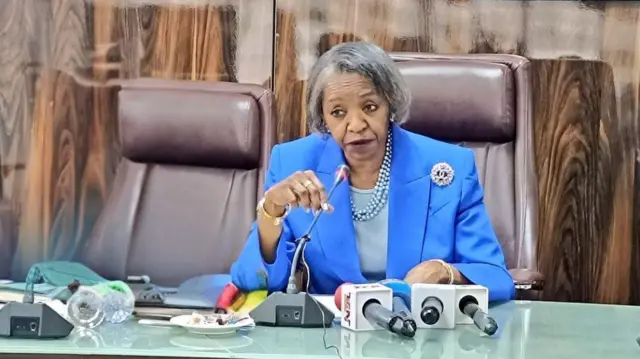On October 7, 2025, President Bola Tinubu accepted Professor Mahmood Yakubu’s resignation as INEC Chairman after his second term.
The INEC transition marks a critical shift for Nigeria’s electoral system.
Agbamuche-Mbu Takes Charge
Yakubu handed over to May Agbamuche-Mbu, a veteran lawyer, as acting chairman. She will lead until Tinubu names a new chair after the October 9 Council of State meeting.
Honoring Yakubu’s Service
Tinubu awarded Yakubu the Commander of the Order of the Niger. “He bolstered democracy,” Tinubu said, noting Yakubu’s role in the 2019 and 2023 elections during the INEC transition.
Key Electoral Reforms
Yakubu introduced the Bimodal Voter Accreditation System (BVAS) in 2021, enhancing voter verification.
The Results Viewing Portal improved transparency. These innovations shaped the 2023 elections.
Improved Voting Access
Under Yakubu, INEC expanded polling units, aiding accessibility. He prioritized disabled, elderly, and displaced voters.
Continuous voter registration streamlined the process, a hallmark of his tenure.
Challenges Faced
The INEC transition follows 2023 election issues, including technical delays and security lapses. Critics noted material shortages and voter distrust, sparking calls for systemic improvements.
Reform Advocacy Grows
Senior Advocate Ifedayo Adedipe urged focus on voter conduct over appointment debates.
Adedayo Adedeji backed Tinubu’s appointment powers, stressing Senate oversight for a credible INEC transition.
Legislative Reform Push
House Speaker Tajudeen Abbas vowed Electoral Act changes for 2027. “We’ll ensure fairer elections,” he said. Proposals include real-time result transmission and an Electoral Offences Commission.
Addressing Broader Issues
Abbas called for state policing and economic laws. “We need community-driven security,” he said. Startup and renewable energy legislation align with Tinubu’s Renewed Hope vision.
INEC’s Future Path
The INEC transition, led by Agbamuche-Mbu, sets the stage for 2027. Her expertise ensures stability. Electoral reforms and public trust are vital for Nigeria’s democratic future.






